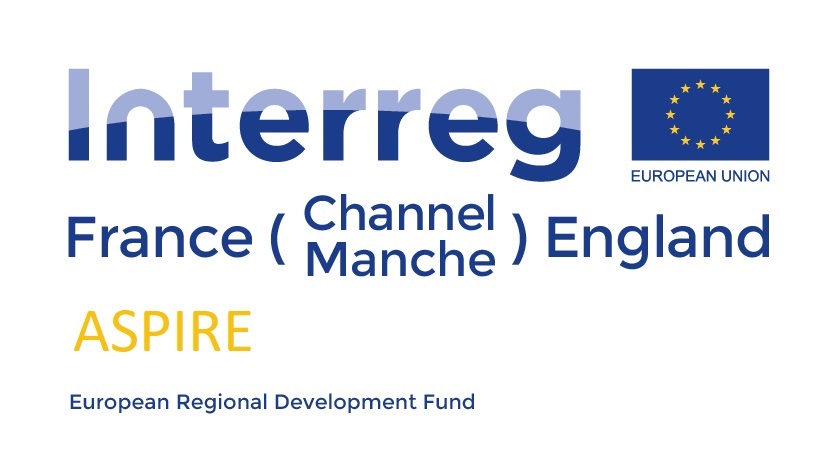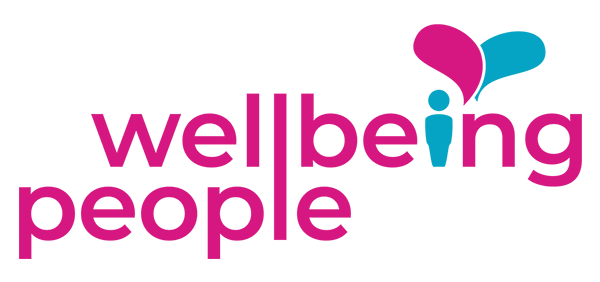PUBLIC HEALTH PROJECTS

ASPIRE PROJECT
Wellbeing People are delighted to be part of a new community-engagement project taking place across 9 sites in Southern England and Northern France.
ASPIRE (Adding to Social capital and individual Potential In disadvantaged Regions) has received more than €7 million Euros from the European Regional Development Fund. ASPIRE is part of the Interreg VA Channel programme and will run from September 2019 to February 2023. The project has a total budget of over €10million and involves partners from the UK and France (see partner details below).
THE CHALLENGE: OBESITY AND UNEMPLOYMENT
Obesity across the FCE (France Channel England) area is a significant concern; high levels of obesity coincide with high rates of unemployment across the zone. A Gallup poll shows that the longer a person is unemployed, the higher the rates of obesity, with rates reaching up to 32.7% after a year or more of unemployment.
ASPIRE will give obese/overweight and/or unemployed people the tools they need to make healthier lifestyle choices and improve their employability. Current health and employment services rarely work together to tackle the issues as one problem, despite the evidence that they are linked.
Current services also have difficulties in reaching the target audience due to the remoteness of much of the non-urban target population. Public Health England data shows a correlation between the fact that most services are delivered in town centre locations (lower obesity rates) and rural populations are disadvantaged (higher obesity rates) as access to services is harder.
Scottish Section Conference 2023 – Diet, health and inequalities
Body composition and motivations for accessing an innovative, digital community health engagement tool in socially deprived areas.
- Sophia Amenyah (Faculty of Health and Social Sciences, Bournemouth University, Bournemouth)
- Lee-Ann Fenge (Faculty of Health and Social Sciences, Bournemouth University, Bournemouth, UK)
- Julie Stallard (Wellbeing People Ltd, Maidstone)
- Phillip Lerwill (Wellbeing People Ltd, Maidstone)
- Ben McGannan (Wellbeing People Ltd, Maidstone)
- Natália Oliveira (Faculty of Health and Social Sciences, Bournemouth University, Bournemouth, UK)
- Wen Tang (Faculty of Science and Technology, Bournemouth University, Bournemouth)
- Jane Murphy (Faculty of Health and Social Sciences, Bournemouth University, Bournemouth, UK)
Introduction
Obesity remains a critical public health challenge which adversely impacts health expectancy, quality of life, mortality and morbidity. The effects are even more pronounced in individuals living in socially deprived circumstances(1). Engaging individuals within the community using novel and person-centred approaches remains a critical pathway to prevention and improving the health of individuals living with overweight and obesity. Limited research has explored the motivations of individuals living with obesity to engage with community health and engagement services as an alternative to general practice services.
The aim of this study is to assess the associations between body composition and the use of a novel community health engagement tool in socially deprived communities.
Methods
Data for this study was collected as part of the larger Adding to Social capital and individual Potential In disadvantaged Regions (ASPIRE) study(2)using the Interactive Health Kiosk(2). The Health Kiosk is an interactive health and wellbeing engagement tool based on validated measures which allows users to do a health MOT, by measuring body composition and other health and wellbeing metrics. Data on demography, body composition and motivation for using the Health Kiosk, were extracted for this analysis.
Results
A total of 2473 participants, 59.7% female, mean age of 48±18.6 years were included in this analysis. Average BMI was 28.0±6.0kg/m2, with the majority of participants in the pre-obesity category (34.8%). Motivations for using the Health Kiosk included the following: Worried about health (18.8%), Not able to see doctor (5.2%), Encouraged by family/friend (6.8%), Encouraged by staff at hub (23.9%), Health conscious (13.0%), More convenient than visiting doctor (3.5%) and Other (28.9%). Participants’ motivations for using health kiosk differed according to age, sex and employment status (p<0.001). Post-hoc analysis indicated that individuals who were worried about their health (53.3±17.6 years) or with limited access to a doctor (53.9±17.4 years) were older compared to individuals encouraged by family/friends (46.1±17.9) or hub staff (37.8±16.4) or health conscious. Participants motivations for using health kiosk indicated significant differences in BMI (p<0.001) and BFC (p<0.001). BMI for health-conscious individuals (26.4±5.2kgm-2) while still in the overweight category, was significantly lower compared to individuals who were worried about their health (28.9±6.1kgm-2), encouraged by family/friends (28.8±6.6kgm-2) or encouraged by hub staff (28.2±7.3kgm-2). Similarly, health-conscious individuals (30.9±8.6%) had significantly lower BFC compared to those worried about their health (35.2±10.2%), had limited access to a doctor (34.9±10.2%), encouraged by family/friends (34.4±11.2%) or indicated that health kiosk was more convenient than visiting the doctor (35.0±8.1%).
Conclusions
This study provides critical and novel evidence on motivations for accessing a health engagement tool within socially deprived communities. It highlights the need and use of community-centred health engagement approaches to reduce and prevent obesity and presents potential options for commissioning health improvement and preventive services.
Topics
- Novel nutrition research methodologies and technologies: encompasses the development of methodologies by which nutrition is studied.
Additional Info
| References – Please read the instructions.: |
|
| Acknowledgments : | This work is funded by grants from the EU Interreg European Regional Development Fund (ASPIRE 191). The authors thank the participants and all the team members of the Adding to Social capital and individual Potential In disadvantaged Regions (ASPIRE) project. |
| Author and institution address – Please read the instructions: | S.D. Amenyah1, L-A. Fenge1, J. Stallard2, P. Lerwill2, B. McGannan2, N. Oliveira1, W. Tang3, J.L. Murphy1. 1. Faculty of Health and Social Sciences, Bournemouth University, Bournemouth, UK. 2. Wellbeing People Ltd, Maidstone, UK and 3. Faculty of Science and Technology, Bournemouth University, Bournemouth UK. |
THE PROGRAMME
A new FCE model, co-created using partner expertise in both fields, will holistically combine the necessary support to increase employability with access to local healthy food produce and consequent weight loss. The model will be implemented via 7 implementation sites and innovative technology in order to enable participants to improve their relationship with food and provide them with the skills and support they need to gain access to the labour market.
ASPIRE combines health, wellbeing and up-skilling opportunities in one holistic programme that is open to participants who are both struggling to manage their weight, or their health in general, and to improve their employability. Nine hub sites across the UK and France have been implementing the ASPIRE model, with evaluation being undertaken by Bournemouth University.
ASPIRE Project- Evaluation Report
Working with communities with high levels of unemployment, ASPIRE empowers those who want to make positive changes in their daily lives. ASPIRE strives to help people by improving their self-esteem, health, and wellbeing through gardening, cooking and other activities.
Read the full evaluation report of the ASPIRE Project here
ASPIRE – PROJECT PARTNERS
- Wellbeing People Ltd
- Kent County Council
- Kent Community Healthcare Foundation Trust
- The Health and Europe Centre
- Mission Locale Picardie Maritime
- Maison pour l’Entreprise, l’Emploi et la Formation Santerre Haute Somme
- Centre Social Audrey Bartier
- C3 Collaborating for Health
- Bournemouth University
- Bournemouth, Christchurch and Poole Council
- Anges Gardins
- Vivons en Forme (Association FLVS)
- Medway Community Healthcare
- Dover District Council
- Your Leisure
THE STEP BY STEP PROJECT
Step by Step (SBS) will empower men to move from poor health &/or isolation to healthy social participation or active engagement in the labour market. It will promote a culture in which all citizens in all regions will have the confidence to make sustainable positive changes in their lives benefitting themselves & society. The expected changes include: reduced health costs related to physical & mental health issues; better health contributing to healthier individuals, families, communities & workforce; increased labour market activity; decreased number of work days lost to poor health.
The target group for SBS is specifically men and in particular those who may be socially isolated and suffering from poor mental health or poor wellbeing. However the project will also be open to women who will be very welcome to use the new SBS services.
Funding
Step By Step (SBS) has secured more than €2.6 million of European funding in its €4.3 million cross-border partnership involving 10 organisations from the UK, The Netherlands, France and Belgium – see below for partner details. The project was approved and funded by the EU Interreg 2 Seas Programme 2014-2020 and co-funded by the European Regional Development Fund which has supported the project over four years.
Background
There is consistent evidence men access health services less than women & experience poorer physical health outcomes. Their suicide rates across Europe are increasing & unemployment, non-participation, isolation & poor mental health are all contributing factors. Depression & other mental health problems are both under-detected and under-treated. Men’s physical health in all areas is similarly poor. Studies have shown that the unemployed suffer more health problems, including mental health, than those in work & the longer people stay off work when sick, the less likely they will return.
Currently health services (general practice, dentists, pharmacies etc) are under-used by men, with adverse impacts on their health, their families & their communities, as well as on employers & the national health budgets. Men are also less likely to make use of preventative health checks such as oral health, sight & screening.
Outreach work by project partners has shown that men see a clear need for a different way of providing services to them within their local communities.
Delivery of Step by Step
- A model to improve men’s mental & physical health/wellbeing via a community space/workshop where men meet/learn new skills/engage in hands on activities
- 94 new workshops implementing the model
- New model of community health service delivery for men & vulnerable groups.
- A gaming-based virtual tool to connect people and indirectly to raise their awareness of their physical/mental health and wellbeing.
- Training programme to create champions for health & wellbeing from within the workshop attendees
- Training programme for soft skills (motivational interviewing, empowerment etc)
Partners
The Health and Europe Centre is the Lead Partner for SBS and will be working with:
Kent County Council (UK)
Hampshire County Council (UK)
University of Chichester (UK)
Bolwerk (BE)
Wattrelos Association of Community Centres (FR)
ADICE – Association for the development of citizen and European initiatives (FR)
Community Centre Jean Ferrat Arques (FR)
Community Centre ‘De Mussen’ (NL)
Wellbeing People (UK)
Observer partners include: The Department of Work and Pensions; Southampton City Council; UK Men’s Sheds Association; Maison de l’emploi de Valenciennois; Werkgevers Service Punt; Conseil Départemental du Nord.
Step-by-Step Final Project Conference
Wellbeing People got together with experts from nine organisations to present their findings and a new model of the Shed concept at an online event, on Friday 8 October.
Step-by-Step Project researchers worked with more than 80 groups across the UK, France, Belgium, and the Netherlands to develop a new Men’s Shed concept. Since then, it has been adopted by groups of all ages and backgrounds and promotes health and wellbeing through peer-support and autonomy.
Step-by-Step evaluator Andy Wood, from Chichester, said: “We will be revealing the results from the last four years and show how the project is making a difference to men facing poor mental and physical health.
“The Men’s Shed model is highly transferable in this country and beyond and our new concept is empowering men to re-engage with society and employment. Those involved in the study told us they have benefitted from improved knowledge and skills and feel happier and more confident.”
Through research, it was found that men suffering from high-risk loneliness benefitted mentally by engaging in community activities and being trained in different skills. The preliminary report was published last year and showed that men’s mental health improved significantly with this initiative. It also found most members enrolled in this concept for social opportunities, which lead to new relationships, increased feelings of self-worth and lower rates of loneliness.
Alice Chapman-Hatchett, Director of the Health and Europe Centre, said: “This project shows the importance of working collaboratively across countries, pooling expertise to improve health outcomes for citizens in practical ways. The Health and Europe Centre is delighted to have been able to develop and co-ordinate such a successful project.”

